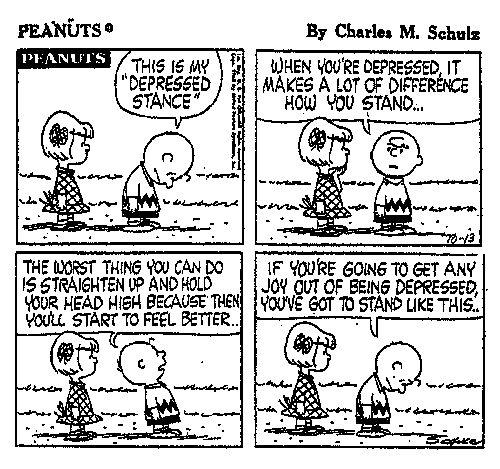 It was a beautiful spring day and I was 11 or 12 years old, humming a song as we set off on the three-hour drive home from a state piano competition that I hadn’t won.
It was a beautiful spring day and I was 11 or 12 years old, humming a song as we set off on the three-hour drive home from a state piano competition that I hadn’t won.
“Why are you singing?!” my mom demanded. To her, it was unthinkable that I could be cheerful in the wake of such a disappointing result. Didn’t I realize the ramifications for my future as a world-famous concert pianist?
Apparently not. At that age, I didn’t yet attach much meaning to any particular result so I recovered quickly. It was a beautiful day, why should I feel down about something I couldn’t change?
Fast forward to the amateur piano competition I entered a few years ago. Over the course of three months of intense practice and preparation, I convinced myself that this was it —my opportunity to gain exposure as a peak performance coach, connect with high-performance clients, get performing opportunities and hey, why not, capture the attention of an agent who would sign me on for a recording contract. So this time, when I didn’t advance past the semifinals I equated the result with the loss of big dreams and I was crushed. Devastated.
There Is No Built-In Meaning
Maybe you don’t identify with piano competitions. But surely there’s been something that you’ve wanted and attached great significance to — funding from a top VC, a contract with a high-profile client, an industry award or promotion to a certain job title. And the more meaning you give to it — this will be the stamp of approval for my company or this will justify getting my MBA or moving cross-country — the more painful it is when it doesn’t happen.
If you’re looking to be more resilient, a simple formula would be: Let go of attachment quicker.
Yeah, I know, simple in concept, not so easy in practice. Still, it helps when you have a set of tools to manage your emotions: stick to the facts, tell a different story, change your perspective.
In fact, I’ve gotten so good at using these tools that sometimes I wonder at my ability to bounce back from events that used to throw me for a loop: “Wait, shouldn’t I be more upset?” Actually, no. We’ve been conditioned to think that X event should elicit Y reaction and that a certain amount of suffering is warranted to show how much we care. But suffering is a way of giving away our power. It benefits no one — so why not shorten it if we can?
And it’s possible no matter what’s going on in your life: life-changing events (launching a business, relocation, promotion); setbacks (loss of funding/major client, divorce, health crisis); relentless stress (competitive environment, extreme workload); or a toxic environment (demanding boss, difficult colleagues, dysfunctional team).
